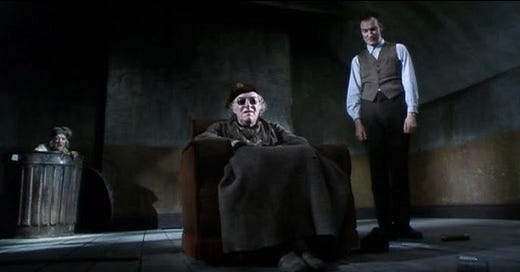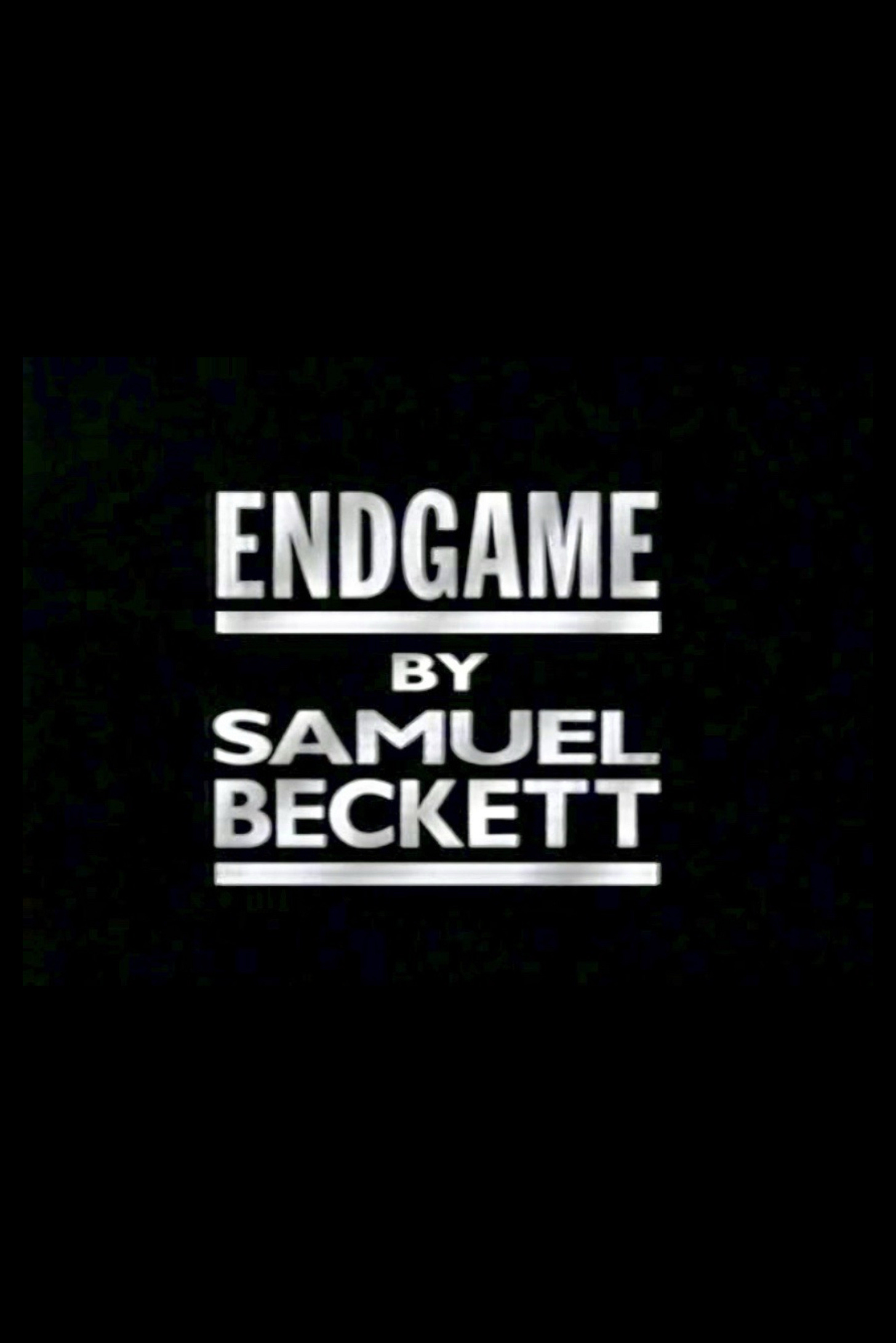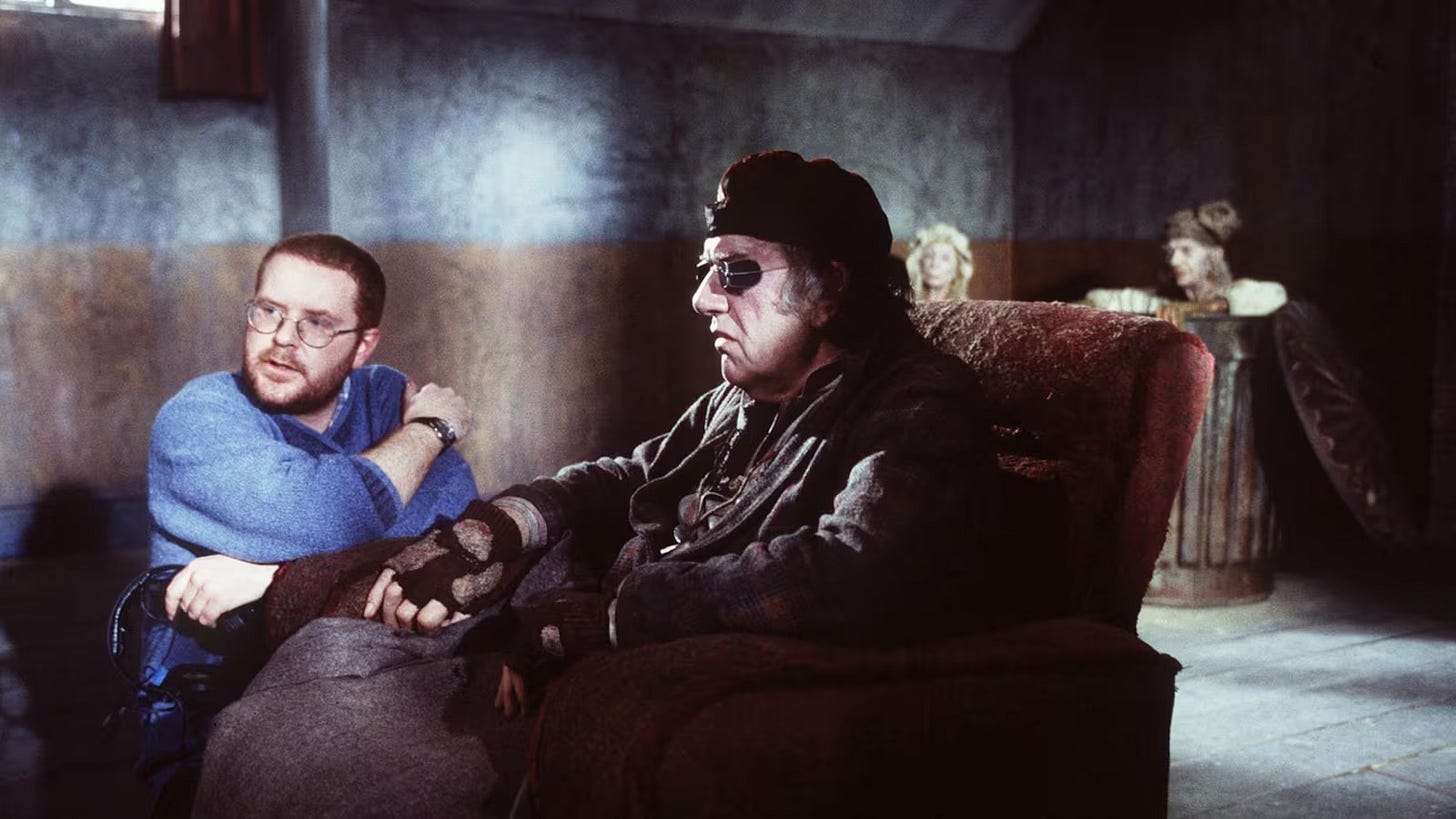Directed by Conor McPherson
United Kingdom, 2000
Finished, it's finished, nearly finished, it must be nearly finished.
So begins this week’s film. Well, actually a film adaptation of a play: Endgame, written by Samuel Beckett and directed for the screen by Conor McPherson.
If you are familiar with Beckett’s work, the repeated use of the word ‘finished’ to open a film will resonate, perhaps. If not, don’t worry. Welcome to Beckett’s Theatre of the Absurd: a form where storytelling is ditched, logic evaporates, and the world is devoid of meaning.
However, while this may sound obscure, opaque, and indeed obtuse, as the non-drama unfolds, there is something about the sense of timelessness, the performances, and the masterful use of language, that makes Endgame a compelling watch. The setting is a bare room, dimly lit with just two small windows looking to the world outside. Out there is a wasteland, a cataclysmic event has taken place:
Hamm: Nature has forgotten us.
Clov: There’s no more nature.
Inside, we find Hamm (Michael Gambon), a demanding, blind invalid, and his resentful servant, Clov (David Thewlis). They are two men seemingly bound to one another. In one corner are two dustbins. Inside sit an aged, legless couple, Nagg and Nell: Hamm’s ‘accursed progenitors’ i.e. his parents. An idea that may or may not have been the inspiration for Sesame Street’s Oscar the Grouch.
The title Endgame is a clear allusion to the closing moves of a game of chess, and Hamm and Clov could be two pieces on the board. Both able to move, albeit in a very limited fashion.
Clov: I can't sit.
Hamm: True. And I can't stand.
Clov: So it is.
Hamm: Every man his speciality.
Hamm sits like the King in check, stuck in the centre of the room, obsessed with movement – backwards, forwards, yet going nowhere. Clov repeatedly retreats to a hidden kitchen. Are they the chess-pieces, or perhaps the players? If the latter, they are pretty poor players as they can’t bring the game to its end. What follows is a series of exchanges: language as verbal swordplay, full of puns, puzzles, and poetry.
Clov: Do you believe in the life to come?
Hamm: Mine was always like that.
Bleak? Absolutely. Despairing? Certainly. Yet, infused with a dark humour, no more so than through Nagg (Charles Simon) and Nell (Jean Anderson), the old, odd couple, legless in their bins.
Nagg (on complaining to a tailor about his slow work): God damn you to hell, Sir, no, it's indecent, there are limits! In six days, do you hear me, six days, God made the world. Yes Sir, no less Sir, the World! And you are not bloody well capable of making me a pair of trousers in three months!
The tailor replied: "But my dear Sir, my dear Sir, look - at the World - and look - at my Trousers!"
Every line is dense with humour and despair - C
The comedy is often of the broad, music-hall variety. And although Endgame is timeless, its 1950s origins are clear: the post-apocalyptic backdrop speaks to the Cold War and the threat of nuclear annihilation. And yet, the contemporary resonance is there too. These characters could be living through a pandemic lockdown, where the elderly are literally ‘binned’.
Endgame is shot by McPherson in a straightforward style: the decaying room is like an old bunker and the camera is static for the most part, reinforcing the inertia of its players. When it moves, the camera does so with precision, and then on occasion it suddenly pulls into a close-up, reinforcing the claustrophobia.
Of course, it is the performances that drive Endgame. David Thewlis as the harassed servant Clov, has a mechanical physicality but bursts into life when he discovers a flea in his trousers – a spark of life in a dying world. Michael Gambon plays Hamm as The Tempest’s majestic Prospero. It’s a performance of heightened theatricality… Hamm or ‘ham’? The only other Hamm I’m aware of is the pig from Toy Story, who has a similarly dyspeptic worldview. If Hamm is the King, then Clov is his knight, moving in an erratic fashion, trapped in that master-servant dynamic. The Fool to Hamm’s Lear, Darth Vader to Emperor Palpatine, and perhaps Samuel Beckett to a near-blind James Joyce.
…another one I’ll struggle to rate as for me this is probably best play of all time haha - C
So, Endgame: a play that depicts the inevitable march towards death, and yet the characters never quite get there, except for Nell who dies in her dustbin. Perhaps as she is the only character who recognises the true absurdity of their situation. Endgame is, after all, a play in which nothing happens once, written alongside Beckett’s best-known play, Waiting for Godot, in which famously, nothing happens… twice.
Our revels now are ended – Prospero, The Tempest
Reids’ Results (out of 100)
C - 93
T - 73
N - 79
S - 84
Thank you for reading Reids on Film. If you enjoyed our review please share with a friend and do leave a comment.
Coming next… Io Capitano(2023)









I came here thinking it was Marvel !